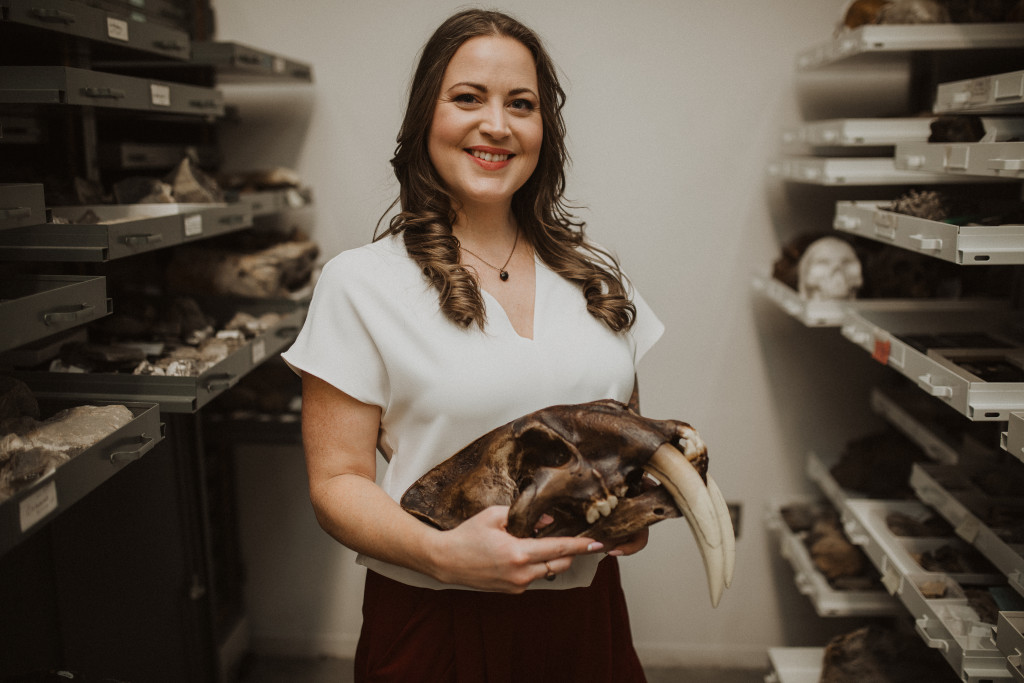PBS host Kallie Moore to visit UW–Madison as spring Science Writer in Residence

In addition to sharing evolutionary tales on “Eons,” Kallie Moore serves as Collections Manager for the University of Montana Paleontology Center, where she preserves and organizes the center’s large fossil collection and coordinates public outreach events, among other duties.
Kallie Moore, co-host of the PBS Digital Studios channel “Eons,” professional fossil librarian and the author of a new children’s book about prehistoric life is the University of Wisconsin–Madison’s Sharon Dunwoody Science Journalist in Residence this spring.
From March 12 to 14, Moore will visit campus to share her expertise in digital content creation and science communication with students in journalism and communication courses.
On March 13 from 7 to 8 p.m. she will provide a behind-the-scenes look at her work as a professional YouTuber and science communicator for PBS “Eons” at Wisconsin Institute for Discovery’s monthly lecture series, Crossroads of Ideas. The talk, “Can You Dig It,” will be held in the DeLuca Forum at the Discovery Building, 330 North Orchard St. The Crossroads of Ideas series is free and open to the public. Registration is requested.
Moore has co-hosted PBS’s paleontology-focused digital show “Eons” since its inception in 2017. The channel has nearly 3 million subscribers on YouTube and features deeply researched short episodes that investigate scientific questions about life on Earth, from the dawn of living organisms through the age of dinosaurs all the way to the end of the most recent ice age.
Topics Moore has tackled for “Eons” include how and why giraffes’ long necks emerged, how chilis became spicy (and why humans love them), the evolutionary origin of bats and when fish first breathed air some 385 million years ago.
In addition to sharing evolutionary tales on “Eons,” Moore serves as Collections Manager for the University of Montana Paleontology Center, where she preserves and organizes the center’s large fossil collection and coordinates public outreach events, among other duties.
In 2022, Moore also became a published author with the publication of “Tales of the Prehistoric World: Adventures from the Land of the Dinosaurs.” The children’s nonfiction book, illustrated by Becky Thorns and published by Neon Squid, features thrilling stories about creatures from the deep past told via the fossilized remains they’ve left behind.
The UW–Madison Science Journalist in Residence program was founded in 1986 and is hosted by the School of Journalism and Mass Communication and University Communications. It is now part of the Sharon Dunwoody Journalist in Residence program at UW–Madison. The late Dunwoody, a professor of journalism at UW–Madison, co-founded the Science Journalist in Residence program with Terry Devitt, emeritus director of research communications.
The program has hosted national science writers nearly every semester, in-person and virtually, including environmental journalist and author Ben Goldfarb, Sabrina Imbler of Defector, Radiolab’s Latif Nasser, Scientific American’s editor in chief Laura Helmuth and Pulitzer Prize-winning Atlantic reporter Ed Yong.




